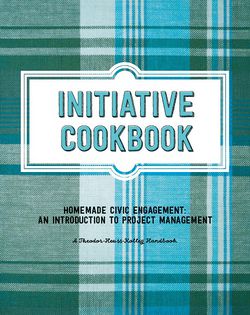Difference between revisions of "Active Citizenship Education"
From Competendo - Digital Toolbox
(→Citizenship Education: Definitions) |
|||
| Line 10: | Line 10: | ||
=== [[Code of Conduct]]=== | === [[Code of Conduct]]=== | ||
| − | [[File: | + | [[File:Method.png | left]]A seminar is an island and we imagine ourselves to be stranded on this island. Now we have to find our own rules. |
</div> | </div> | ||
| Line 16: | Line 16: | ||
=== [[Democracy Scrabble]]=== | === [[Democracy Scrabble]]=== | ||
| − | [[File: | + | [[File:Method.png | left]]Students brainstorm in a scrabble style on their associations regarding a key word like "democracy". The method is used for getting ideas into an order, to make different attitudes visible and to become clearer about different aspects of a topic. |
</div> | </div> | ||
<div class="teaser-box"> | <div class="teaser-box"> | ||
===[[Democracy Circle]]=== | ===[[Democracy Circle]]=== | ||
| − | An introducing method for a discussion under the question: "What does democracy mean for me personally, what is my relation, am I critical or convinced from it?" | + | [[File:Method.png | left]]An introducing method for a discussion under the question: "What does democracy mean for me personally, what is my relation, am I critical or convinced from it?" |
</div> | </div> | ||
<div class="teaser-box"> | <div class="teaser-box"> | ||
===[[American Debate]]=== | ===[[American Debate]]=== | ||
| − | The method addresses the communicative skills and helps to reflect opposite points of view in a discussion. Therefore two groups discuss the opposite opinions regarding a topic. This may be a general relevant topic or a current hot topic in your society. | + | [[File:Method.png | left]]The method addresses the communicative skills and helps to reflect opposite points of view in a discussion. Therefore two groups discuss the opposite opinions regarding a topic. This may be a general relevant topic or a current hot topic in your society. |
</div> | </div> | ||
<div class=teaser-box> | <div class=teaser-box> | ||
===[[Who Can Change Things?]]=== | ===[[Who Can Change Things?]]=== | ||
| − | Participants reflect, how the main sectors within the society interact. The method gives an idea, to what extent the impact of a social initiative may depend from cooperation across sectoral borders. | + | [[File:Method.png | left]]Participants reflect, how the main sectors within the society interact. The method gives an idea, to what extent the impact of a social initiative may depend from cooperation across sectoral borders. |
</div> | </div> | ||
<div class=teaser-box> | <div class=teaser-box> | ||
===[[Task: Start with "Why"]]=== | ===[[Task: Start with "Why"]]=== | ||
| − | Help your participants to describe their initiative starting with the impact (instead of the image or the activities). | + | [[File:Method.png | left]]Help your participants to describe their initiative starting with the impact (instead of the image or the activities). |
</div> | </div> | ||
<div class=teaser-box> | <div class=teaser-box> | ||
===[[Map your neighborhood]]=== | ===[[Map your neighborhood]]=== | ||
| − | [[File: | + | [[File:Method.png | left]]Let your participants take a look at their neighborhood. They may draw, sketch, or paint a map and put in all relevant information. |
</div> | </div> | ||
| Line 56: | Line 56: | ||
<div class=teaser-box> | <div class=teaser-box> | ||
===[[My motivation(s)]]=== | ===[[My motivation(s)]]=== | ||
| − | Explore the diversity of motivations in yourself, in your participants, or in a team. Help to belance different or opposite motivations. | + | [[File:Method.png | left]]Explore the diversity of motivations in yourself, in your participants, or in a team. Help to belance different or opposite motivations. |
</div> | </div> | ||
<div class=teaser-box> | <div class=teaser-box> | ||
===[[Ways to deal with internal criticism]]=== | ===[[Ways to deal with internal criticism]]=== | ||
| − | Criticism is the brother or sister of enthusiasm. However, sometimes it's becoming too destructive. Five ways to turn criticism in a constructive inner dialogue. | + | [[File:Article.png | left]]Criticism is the brother or sister of enthusiasm. However, sometimes it's becoming too destructive. Five ways to turn criticism in a constructive inner dialogue. |
</div> | </div> | ||
| Line 68: | Line 68: | ||
===[[Project Impact on Community]]=== | ===[[Project Impact on Community]]=== | ||
| − | The activity aims at evaluating the outcomes that the projects have had on the community as well as to enabling the participants to evaluate these outcomes from different perspectives. | + | [[File:Method.png | left]]The activity aims at evaluating the outcomes that the projects have had on the community as well as to enabling the participants to evaluate these outcomes from different perspectives. |
</div> | </div> | ||
Revision as of 01:41, 13 January 2017
During:
Related:
H. Fahrun, E. Skowron,
N. Zimmermann
Initiative Cookbook
Homemade Engagement. An Introduction to Project Management.
MitOst Editionen 2015: Read




